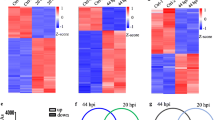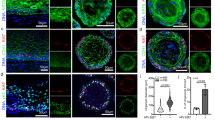Abstract.
Heat shock protein 60 (HSP60) plays an important role in the protein folding of prokaryotic and eukaryotic cells. Most of the papers published on chlamydial HSP60 concern its role in immune response during infection. In the last decade, exposure to Chlamydia trachomatis has been consistently associated with the development of cervical and ovarian cancer. Moreover, it has been suggested that chlamydial HSP60 may have an anti-apoptotic effect during persistent infection. We hypothesize that the accumulation of exogenous chlamydial HSP60 in the cytoplasm of actively replicating eukaryotic cells may interfere with the regulation of the apoptotic pathway. The concomitant expression of viral oncoproteins and/or the presence of mutations may lead to the ability to survive apoptotic stimuli, loss of replicative senescence, uncontrolled proliferation and, finally neoplastic transformation.
Similar content being viewed by others
Author information
Authors and Affiliations
Corresponding author
Additional information
Received 15 August 2004; received after revision 1 October 2004; accepted 7 October 2004
Rights and permissions
About this article
Cite this article
Di Felice, V., David, S., Cappello, F. et al. Is chlamydial heat shock protein 60 a risk factor for oncogenesis?. CMLS, Cell. Mol. Life Sci. 62, 4–9 (2005). https://doi.org/10.1007/s00018-004-4367-6
Issue Date:
DOI: https://doi.org/10.1007/s00018-004-4367-6




